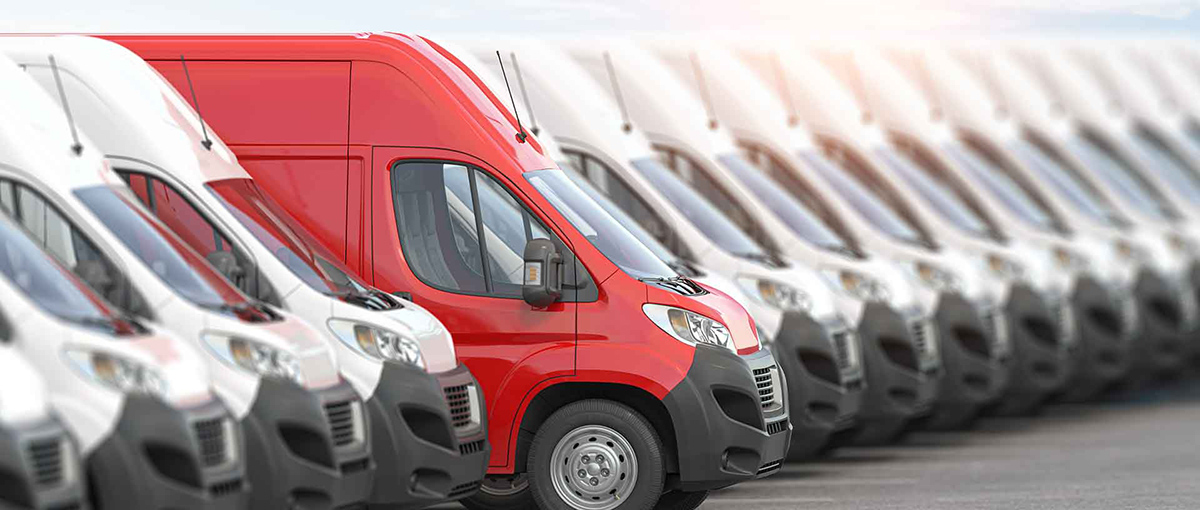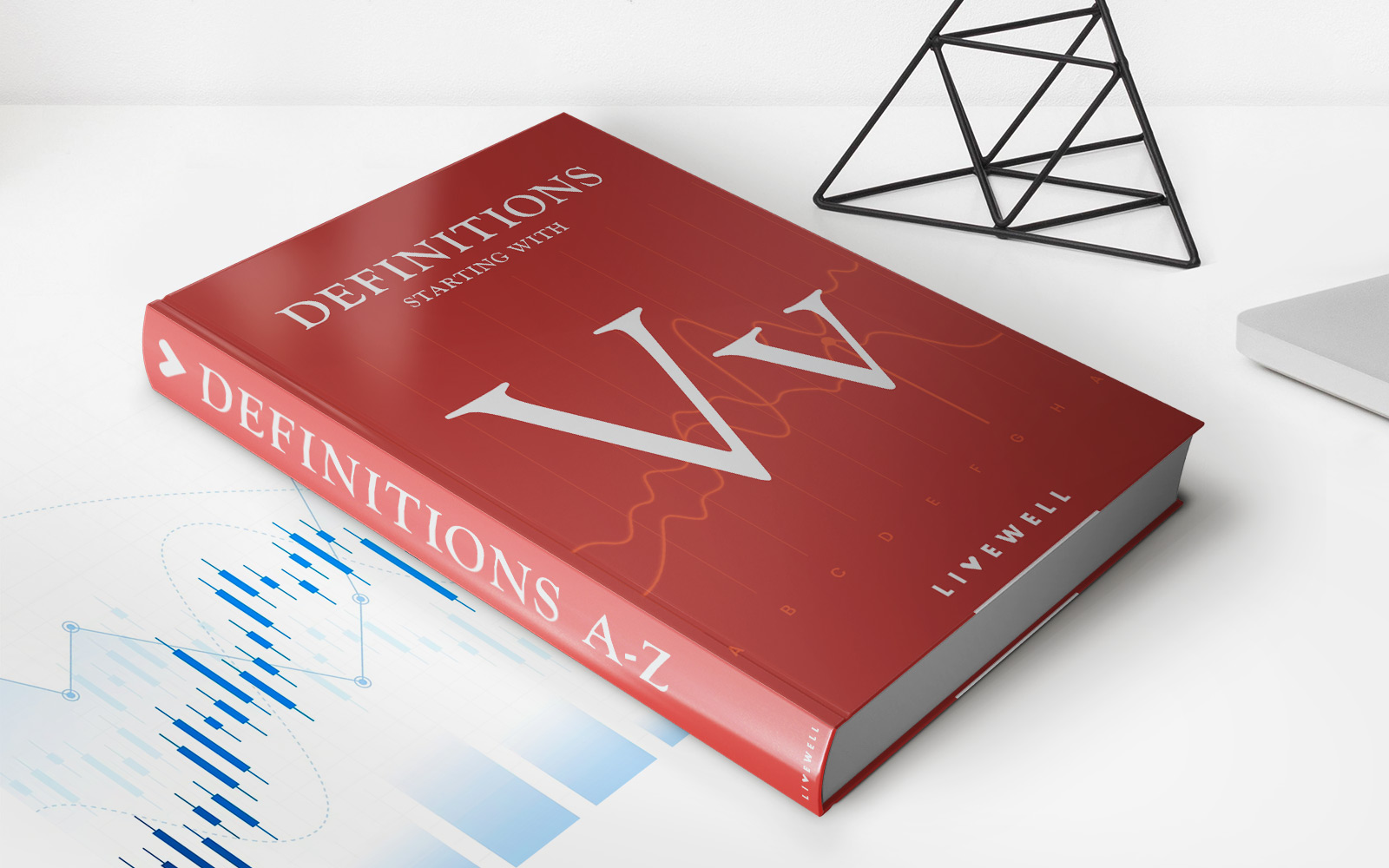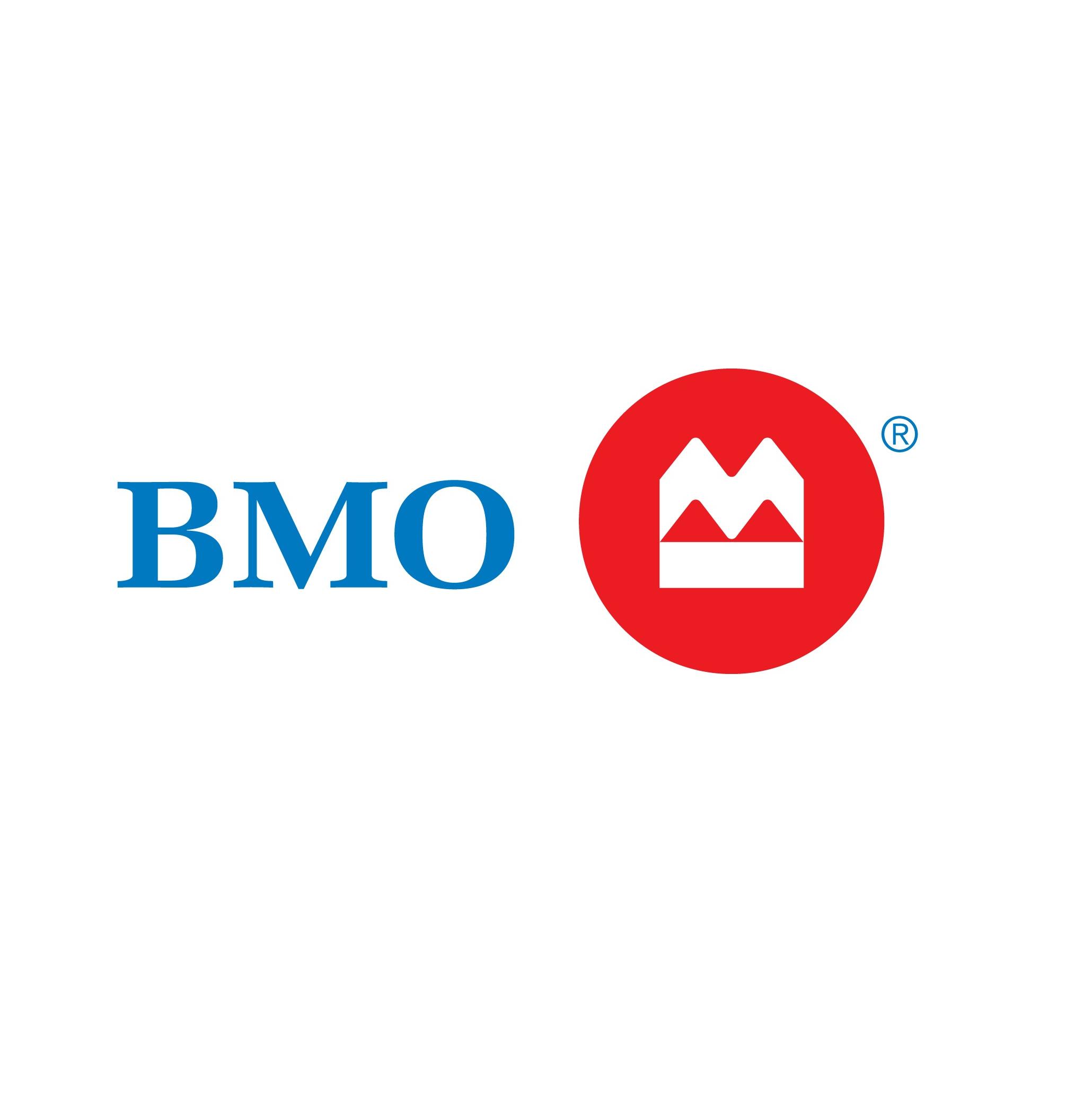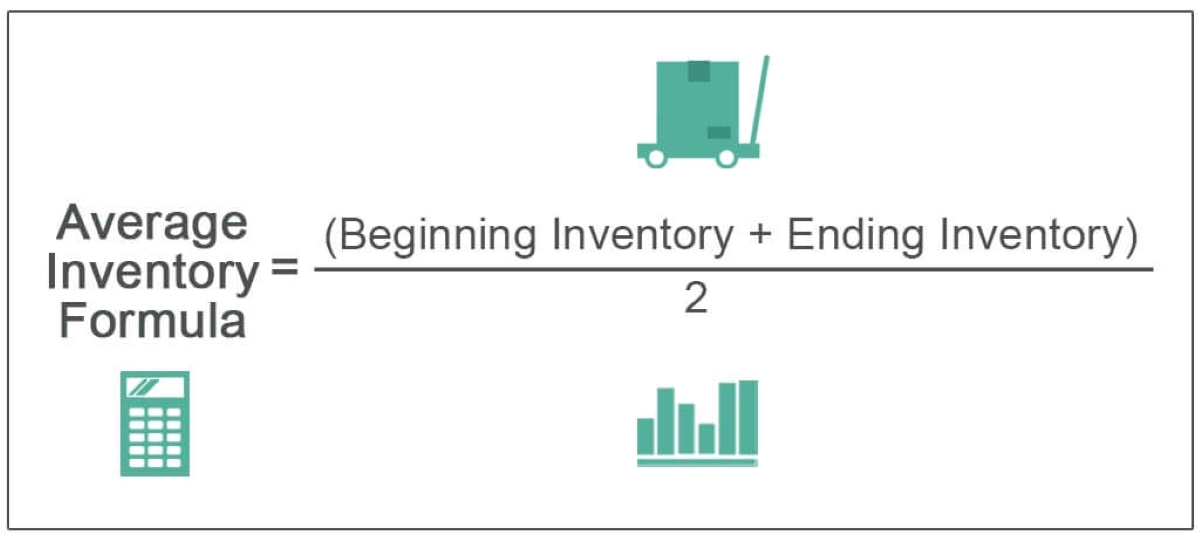

Finance
How Much Is Commercial Van Insurance?
Published: November 21, 2023
Get insights into the cost of commercial van insurance and find the best rates for your business. Compare finance options and save on your insurance premiums.
(Many of the links in this article redirect to a specific reviewed product. Your purchase of these products through affiliate links helps to generate commission for LiveWell, at no extra cost. Learn more)
Table of Contents
- Introduction
- Factors That Affect Commercial Van Insurance Rates
- Average Cost of Commercial Van Insurance
- Tips to Save Money on Commercial Van Insurance
- Types of Coverage for Commercial Van Insurance
- Differences Between Commercial Van Insurance and Personal Auto Insurance
- Importance of Commercial Van Insurance
- How to Shop for Commercial Van Insurance
- Conclusion
Introduction
Welcome to the world of commercial van insurance! Whether you’re a small business owner, a courier, or a tradesperson, it’s crucial to understand the ins and outs of insuring your commercial van. Commercial van insurance provides protection for your vehicle, your business, and your peace of mind. In this article, we will explore the factors that affect commercial van insurance rates, the average cost of coverage, tips to save money on insurance, different types of coverage available, the differences between commercial van insurance and personal auto insurance, the importance of having proper coverage, and how to shop for the best policy for your needs.
Running a business involving a commercial van comes with its own set of risks. From accidents on the road to theft of valuable equipment or goods, it’s important to have the right insurance coverage to protect your assets. Commercial van insurance provides financial protection against these risks, ensuring that you can continue running your business smoothly in case of any unfortunate events.
Before we delve into the intricacies of commercial van insurance, it’s important to note that insurance regulations and pricing can vary depending on your location and the insurance provider. It’s always recommended to consult with a licensed insurance professional who specializes in commercial insurance to obtain personalized advice.
Now, let’s dive into the factors that affect commercial van insurance rates and explore how you can navigate this complex landscape to find the best coverage for your commercial van.
Factors That Affect Commercial Van Insurance Rates
When it comes to determining the cost of your commercial van insurance, several factors come into play. Understanding these factors can help you make informed decisions and manage your insurance costs effectively. Here are some key factors that can influence your commercial van insurance rates:
- Driving record: Your driving history plays a significant role in determining your insurance rates. If you have a clean driving record with no accidents or traffic violations, you’re likely to qualify for lower premiums. On the other hand, if you have a history of accidents or moving violations, your rates may be higher.
- Type of van: The make, model, and year of your commercial van can impact your insurance rates. Vans with a higher market value or that are considered more prone to theft may have higher premiums.
- Usage: How you use your commercial van also affects your insurance rates. If you primarily use it for business purposes, such as deliveries or transporting goods, your rates may differ from someone who uses their van for personal use.
- Annual mileage: The distance you drive your van annually can impact your insurance rates. Higher mileage increases the risk of accidents, leading to potentially higher premiums.
- Location: Your location plays a role in determining insurance rates. Areas with higher rates of accidents or theft may result in higher premiums.
- Business information: Details about your business, such as the industry you operate in, the number of employees, and the nature of the goods you transport, can also affect your insurance rates. Certain industries may be classified as higher risk, leading to higher premiums.
- Claims history: Your claims history, both for commercial van insurance and other types of insurance policies, can impact your rates. If you have a history of filing multiple claims, insurance providers may view you as a higher-risk customer.
It’s important to note that insurance providers may weigh these factors differently when calculating your premiums. Some factors, such as your driving record, have a higher influence, while others may have a milder impact. Understanding these factors allows you to assess your risk profile and take steps to potentially reduce your insurance costs.
Average Cost of Commercial Van Insurance
The cost of commercial van insurance can vary greatly depending on several factors, including the type of van, the coverage options chosen, the location, and the insurance provider. While it’s difficult to provide an exact figure, we can discuss the average cost range to give you a general idea.
On average, commercial van insurance can range from $800 to $2,000 per year for a single vehicle. However, this estimate can increase or decrease significantly based on the factors mentioned above.
The type of van you have will play a crucial role. For example, insuring a delivery van may cost less than insuring a larger commercial vehicle used for transporting heavy goods. Additionally, the value of your van and the cost to repair or replace it in the event of an accident or theft can influence the insurance premiums.
Another key factor is the coverage options you choose. A basic liability-only policy will generally cost less than a comprehensive policy that includes additional coverage such as collision, theft, or vandalism. The higher the coverage limits and deductibles, the higher the insurance premiums will be.
Your location also impacts the cost of commercial van insurance. Areas with higher accident rates or a higher prevalence of theft may have higher insurance rates compared to areas with lower risk. Urban areas tend to have higher insurance premiums than rural areas due to factors such as increased traffic congestion and higher crime rates.
Lastly, the choice of insurance provider can significantly affect the cost. Each insurance company has its own underwriting guidelines and pricing models, so it’s important to shop around and compare quotes from multiple insurers to find the best coverage at a competitive price.
While this information provides an average cost range, it’s important to remember that your actual premiums may vary. Factors specific to your business, such as your claims history and unique risk factors, will influence the final cost of your commercial van insurance.
Tips to Save Money on Commercial Van Insurance
Looking to save money on your commercial van insurance? Here are some tips to help you reduce your premiums without sacrificing coverage:
- Shop around: Don’t settle for the first insurance quote you receive. Shop around and gather quotes from multiple insurers to compare rates and coverage options. This allows you to find the best value for your money.
- Assess your coverage needs: Take a close look at your coverage needs and avoid paying for unnecessary extras. Tailor your policy to cover the specific risks associated with your business and van use, rather than opting for generic coverage options.
- Consider higher deductibles: Choosing a higher deductible means you’ll pay more out of pocket in the event of a claim, but it can significantly lower your premiums. Assess your financial situation and determine if a higher deductible is a suitable option for you.
- Improve van security: Enhancing the security features of your commercial van can help reduce the risk of theft or damage, leading to potential discounts on insurance premiums. Install an alarm system, immobilizer, or GPS tracking device to make your van less attractive to thieves.
- Invest in driver training: Encourage your drivers to participate in defensive driving or safe driving courses. Insurance providers often offer discounts for drivers who have completed these training programs, as they are considered lower risk.
- Consolidate your policies: Consider bundling your commercial van insurance with other business insurance policies, such as general liability or property insurance. Insurers often provide discounts for customers with multiple policies, known as multi-policy or bundle discounts.
- Promptly report claims: Report any incidents or accidents to your insurance provider as soon as they occur. Timely reporting can help streamline the claims process and minimize potential costs, ensuring that you receive the benefits of your coverage.
- Maintain a clean driving record: Safe driving habits can lead to lower insurance premiums. Encourage your drivers to maintain a clean driving record by practicing safe driving techniques, obeying traffic laws, and avoiding at-fault accidents and traffic violations.
- Review your policy annually: Regularly review your commercial van insurance policy to ensure that it accurately reflects your current needs. As your business evolves, your insurance requirements may change, and you may be eligible for additional discounts or savings.
Implementing these tips can help you optimize your coverage and potentially save money on your commercial van insurance. Remember, it’s important to find the right balance between cost and coverage to protect your business and assets effectively.
Types of Coverage for Commercial Van Insurance
Commercial van insurance offers various types of coverage options to protect your business and commercial vehicle from a range of risks. Understanding these coverage options can help you choose the right policy for your specific needs. Here are some common types of coverage available for commercial van insurance:
- Liability coverage: This is the most basic and essential coverage that all commercial van owners should have. Liability coverage provides financial protection if you are held responsible for causing bodily injury or property damage to others in an accident. It typically includes bodily injury liability and property damage liability.
- Collision coverage: Collision coverage pays for the cost of repairs to your commercial van if it is damaged in an accident, regardless of fault. It helps cover the cost of repairing or replacing your vehicle and is especially important if your van is essential to the operation of your business.
- Comprehensive coverage: Comprehensive coverage protects your commercial van from damage or loss caused by events other than collisions. This includes theft, vandalism, fire, natural disasters, and falling objects. It provides coverage for non-collision-related incidents that can pose a significant financial burden.
- Uninsured/underinsured motorist coverage: This coverage steps in if your commercial van is involved in an accident with a driver who is uninsured or underinsured and unable to cover the costs of the damages or injuries they have caused. It helps cover medical expenses, vehicle repairs, and other damages in these situations.
- Medical payments coverage: Medical payments coverage, also known as personal injury protection (PIP), covers medical expenses for you and your passengers regardless of fault. It can help pay for medical bills, hospital stays, and other related expenses resulting from an accident.
- Cargo coverage: If your commercial van is used to transport goods or cargo, cargo coverage can protect your business by providing coverage for damage, theft, or loss of the items being transported. It covers the value of the cargo and can help minimize financial loss if goods are damaged or stolen.
- Rental reimbursement coverage: Rental reimbursement coverage helps cover the cost of renting a replacement vehicle while your commercial van is being repaired due to a covered claim. It ensures that your business operations can continue uninterrupted despite the temporary loss of your primary vehicle.
- Towing and roadside assistance: This coverage provides assistance if your commercial van breaks down or becomes disabled due to mechanical failure, flat tires, or other issues. It typically covers the cost of towing your vehicle to a repair facility and may include services like jump-starts and fuel delivery.
It’s important to carefully consider your specific business needs and consult with a knowledgeable insurance professional to determine which types of coverage are essential for your commercial van insurance policy. Customizing your coverage can provide comprehensive protection and help safeguard your business against financial losses.
Differences Between Commercial Van Insurance and Personal Auto Insurance
Commercial van insurance and personal auto insurance are two distinct types of insurance that cater to different needs and uses. Understanding the differences between these two types of coverage is crucial for business owners relying on commercial vans. Here are some key distinctions:
- Vehicle Usage: Perhaps the most significant difference is the purpose for which the vehicle is used. Personal auto insurance is designed for vehicles used for personal transportation and commuting. Commercial van insurance, on the other hand, is specifically designed for vehicles used for business purposes, such as deliveries, transporting goods, or providing services.
- Liability Coverage: Commercial van insurance typically offers higher liability coverage limits compared to personal auto insurance. This is because commercial vehicles often carry higher risks due to the nature of their usage. Businesses require greater protection in case of accidents or damage caused to others.
- Number of Drivers: Personal auto insurance usually covers a limited number of drivers, typically family members living in the same household. Commercial van insurance, however, can extend coverage to multiple drivers employed by the business, allowing for flexibility when it comes to who can operate the vehicle.
- Vehicle Value: Commercial vans used for business purposes may have a higher market value compared to personal vehicles. Commercial van insurance takes into account the value of the van and the equipment or cargo it carries, ensuring adequate coverage in case of theft, damage, or loss.
- Coverage Options: Commercial van insurance often offers additional coverage options specific to business needs. This can include coverage for tools and equipment carried in the van, protection for goods or cargo being transported, and coverage for business interruption in case the van becomes inoperable due to an accident or other covered events.
- Underwriting and Pricing: Commercial van insurance is underwritten differently from personal auto insurance. Insurers assess the unique risks associated with commercial vehicle usage and determine premiums based on factors specific to businesses, such as the nature of the industry, driving history of the business, and the number of vehicles insured under the policy.
- Regulatory Requirements: Depending on your location and the specific business operations, commercial van insurance may be required by law. Personal auto insurance, while mandatory in most jurisdictions, does not typically have specific requirements based on the type of vehicle or usage.
It’s important to note that personal auto insurance policies typically exclude coverage for vehicles used for business purposes. If you use your personal vehicle for business-related activities, it is crucial to inform your insurance provider and explore the need for commercial van insurance to ensure comprehensive coverage.
Working closely with a knowledgeable insurance professional who specializes in commercial insurance can help you navigate the complexities and make informed decisions about the coverage needed for your commercial van.
Importance of Commercial Van Insurance
Commercial van insurance is not just a legal requirement in many jurisdictions; it is also essential for protecting your business, assets, and financial well-being. Here are some key reasons why commercial van insurance is of utmost importance:
- Financial Protection: Commercial van insurance provides financial protection for your business in the event of accidents, theft, or damage to your van. Without insurance, you would be personally liable for the costs of repairs, medical expenses, and any legal claims arising from accidents or injuries caused by your commercial van.
- Liability Coverage: Accidents happen, and if your commercial van is involved in one that results in bodily injury or property damage to others, you may be held liable. Commercial van insurance offers liability coverage, which provides financial protection in such situations. It helps cover medical expenses, legal fees, and damages, ensuring your business doesn’t suffer a significant financial setback.
- Asset Protection: Your commercial van is a valuable asset that contributes to the success of your business. Whether it’s used to transport goods, provide services, or make deliveries, it is critical to protect this asset from risks such as accidents, theft, vandalism, or natural disasters. Commercial van insurance helps cover the cost of repairs or replacements, allowing you to get your business back on track swiftly.
- Business Continuity: In the unfortunate event that your commercial van is involved in an accident or becomes inoperable due to damage, having insurance can help ensure business continuity. Some commercial van insurance policies offer coverage for business interruption, providing financial assistance during the period when your van is being repaired or replaced. This allows your business to continue operating, minimizing the impact on your bottom line.
- Legal Compliance: In many jurisdictions, commercial van insurance is a legal requirement for businesses operating commercial vehicles. Failing to have proper insurance coverage can result in fines, penalties, and even the suspension of your business operations. By having commercial van insurance, you comply with legal obligations, maintaining the integrity and reputation of your business.
- Peace of Mind: Running a business comes with its fair share of stress and uncertainties. Having the right insurance coverage for your commercial van provides peace of mind. You can focus on growing your business and serving your customers without worrying about the potential financial implications of accidents, damage, or theft that can occur while using your commercial van.
Commercial van insurance is an investment in the protection and longevity of your business. It not only safeguards your financial well-being but also allows you to operate confidently, knowing that you have the necessary coverage to handle unforeseen events. Consulting with an experienced insurance professional can help you navigate the intricacies of commercial van insurance and tailor a policy that meets your specific needs.
How to Shop for Commercial Van Insurance
When it comes to shopping for commercial van insurance, it’s essential to take a strategic approach to ensure you find the right coverage at the best possible price. Here are some steps to follow when shopping for commercial van insurance:
- Evaluate your insurance needs: Assess your business and van’s specific insurance needs. Consider factors such as the type of van, its usage, the industry you operate in, and any unique risks associated with your business. This will help determine the appropriate coverage options you require.
- Research reputable insurance providers: Look for insurance companies that specialize in commercial van insurance. Research their reputation, financial stability, and customer reviews. A reputable provider will have a track record of excellent customer service and timely claims processing.
- Get multiple quotes: Obtain quotes from at least three insurance providers to compare coverage and pricing. Provide accurate and detailed information about your business, the van, and the drivers to ensure the quotes are as accurate as possible.
- Understand the coverage: Carefully review the coverage options offered by each insurance provider. Ensure that the policies meet your specific needs and adequately protect your business and van against potential risks.
- Consider deductible and premium trade-offs: Evaluate the trade-off between deductibles and premiums. Choosing a higher deductible can lower your premiums but increase your out-of-pocket expenses in the event of a claim. Find the right balance that suits your budget and risk tolerance.
- Ask about available discounts: Inquire about any discounts or savings opportunities from insurance providers. Some may offer discounts for things like having a clean driving record, installing anti-theft devices, completing driver training courses, or bundling policies.
- Review policy terms and conditions: Thoroughly review the terms and conditions of the policies you’re considering. Pay attention to any exclusions, limitations, or additional requirements. Ensure you understand the coverage details and any obligations you have as a policyholder.
- Consider additional endorsements: Depending on your business’s needs, consider additional endorsements or add-ons to enhance your coverage. These may include coverage for specific equipment, rental reimbursement, or increased liability limits.
- Consult an insurance professional: If you’re unsure about specific coverage needs or have questions about the policies, consult with an insurance professional who specializes in commercial insurance. They can provide guidance and help you make informed decisions.
- Regularly review and update your coverage: As your business evolves, it’s important to regularly review your commercial van insurance coverage. Periodically reassess your insurance needs and make adjustments as necessary to ensure you have adequate protection.
Remember, commercial van insurance is a critical investment in the protection and success of your business. Take the time to shop around, compare options, and choose a policy that offers comprehensive coverage and value for your specific needs. By following these steps, you can secure the right coverage and have peace of mind while operating your commercial van.
Conclusion
Commercial van insurance is an essential investment for businesses that rely on commercial vans for their operations. It provides financial protection, liability coverage, and peace of mind, ensuring that your business can continue thriving even in the face of unexpected events. Understanding the factors that affect commercial van insurance rates and the various coverage options available allows you to make informed decisions and tailor a policy that meets your specific needs.
When shopping for commercial van insurance, it’s important to evaluate your insurance needs, research reputable providers, and obtain multiple quotes to compare coverage and pricing. Consider factors such as deductibles, discounts, and policy terms to find the right balance between cost and coverage. Consulting with an insurance professional specialized in commercial insurance can provide valuable guidance during the decision-making process.
By securing the appropriate commercial van insurance, you protect your business’s financial well-being, assets, and reputation. You can operate with confidence, knowing that your van and your business are adequately protected from risks such as accidents, theft, and liabilities.
Remember to regularly review and update your coverage as your business evolves. By staying proactive and staying on top of your insurance needs, you can ensure that your commercial van insurance continues to meet your requirements and provide the necessary protection.
Investing in the right commercial van insurance is an investment in the success and longevity of your business. Take the time to research, compare options, and choose wisely. With proper coverage in place, you can focus on growing your business while having the peace of mind that comes with knowing you have adequate protection for your commercial van.














